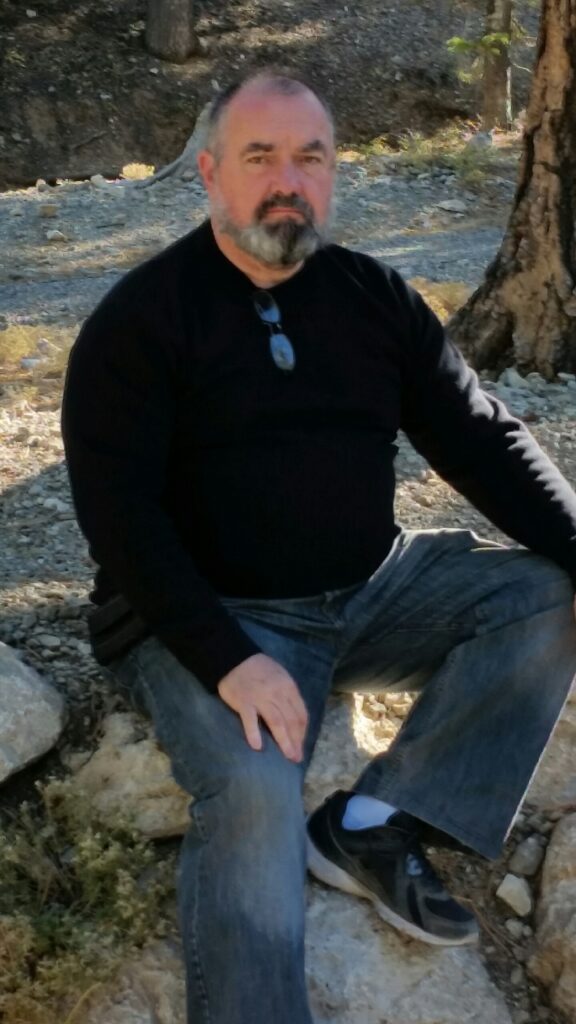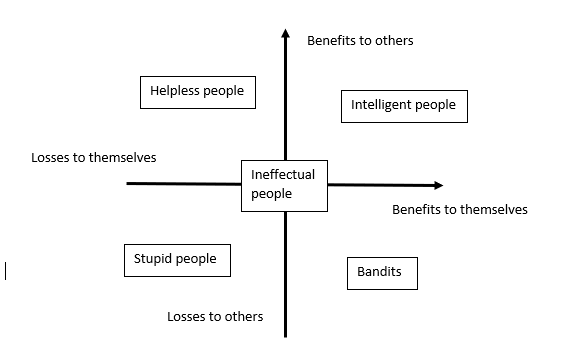I’m going to make a statement that I don’t expect many will agree with on first view: there is no Them – only Us. Now, let me explain what I mean.
Black vs White, West vs East, Rich vs Poor, Christian vs Muslim vs Jew vs Atheist – all these divisions, all these convenient little boxes and definitions we think of – all of them are fake, false, untrue. None of them are real. They are all used on us, used against us really, to keep us fighting each other, to keep us divided. Why? Because those who are in power understand that they need to keep us divided so that they can remain in power. Now, for some background.
Far back in prehistory, long before there were any civilizations, or any technology to speak of, humans learned – through hard experience – not to trust anyone outside of their own little tribes. They learned to fear anything that was not ‘us’. There were undoubtedly very good reasons to think this way, and tribal leaders encouraged this distrust in order to maintain both the safety of the tribe and their own primacy in it. Even as people started to gather in larger groups, to farm, to keep animals and protect themselves, there were still pretty good reasons not to trust others outside the community. However, sometime around the First Century A.D. (sue me, I’m old) with the success of the first great empires, we started to no longer need this aversion to strangers as a salient defense mechanism, and it started to be used as a weapon against the masses. In other words, those in power wanted us to distrust anyone outside the empire as a matter of course, but also to distrust anyone within the empire who didn’t look and talk like us, as a way to keep us subdivided and focused on each other rather than rising up as an uncontrollable unified block against our ‘masters’. It was a very effective device, and kings and emperors were encouraged to use it freely.
For a while there, around the end of the Eighteenth century, the royals (like the Church before them), overstepped their traditional boundaries – the limits that kept everyone happy – and paid the price for their hubris. In fact, they had long since drunk their own Kool-Aid, and sincerely believed that they were God’s anointed and could therefore do whatever they wished. What they ended up doing was solidifying the masses against them, and the masses suddenly realized that they were strong. Empires fell, kingdoms vanished and those that remained were severely curtailed in power. Kings and High Priests were eventually replaced by captains of industry and Robber Barons, who wielded economic power in place of political power. They also set out to keep the masses (the workforce or proletariat) subdivided and weak. That way, they could get richer while the commoners – oh, who cared about them, anyway? This was the crux of Karl Marx’s message. By the time of the Russian Revolution, the promise of Communism was already being eroded by the Labor Union movement, and the Revolution devolved into just another grab for power.
Now we find ourselves in another, similar situation. The various political and economic ‘powers that be’ have stepped up their perennial campaign to keep us shouting at each other and ignoring them. They have subdivided the people on a thousand different fronts from race to video games – all in the name of taking our power, our money and our voice away from us. So far, I hate to say, it’s been working pretty well. But they’ve made a mistake.
Technology and its effects look like just another tool of the powerful, but they are as much at its mercy as we are. Conquer it. Social Media was created as yet another way to keep us occupied and staring at our little screens. Break it. Bitcoin is traded on the open market like some sort of toy for the rich. Start using it as an actual currency, and you will confuse them. Politicians shout their ridiculous slogans at each other, hoping to get us to take sides. Do this instead: look at the laws they are backing (or not); if you don’t like their stance, hit them up on social media and get other like-minded citizens in on it. Reward them or make them back down but make them do what you want. Break the program from within. Alter the grand experiment and leave them scratching their heads. Don’t like Japanese cars? Create a movement to abolish them by asking millions of car buyers to not buy Japanese cars. You’ll put a serious crease in their armor. Don’t use violence, vote with your wallet. Don’t stage rallies and demonstrations, use your electronic voice. The people who try to maintain power over you are defenseless in the face of overwhelming electronic mass opinion, and they will do precisely what we want, not the other way around. And there’s no way to shut it all down anymore. Yes, Big Brother is watching – watch him back.
Start small, create social media groups of like-minded individuals to attack one and only one problem at a time. As you gain success, you will also gain a following, until you become an unstoppable force – decentralized, huge and implacable. Now is the time of Us – take back our world and reform it in Our image, restructure society as We want it, re-green the planet, change the very face of Economics. There is nothing we can’t do if We want it bad enough, no dictator or billionaire is unassailable. And the most beautiful thing of all? There is no They really – your opponents are disorganized, few and suspicious of each other. There is only Us – and together, We are powerful.
pax et ama
TGC


